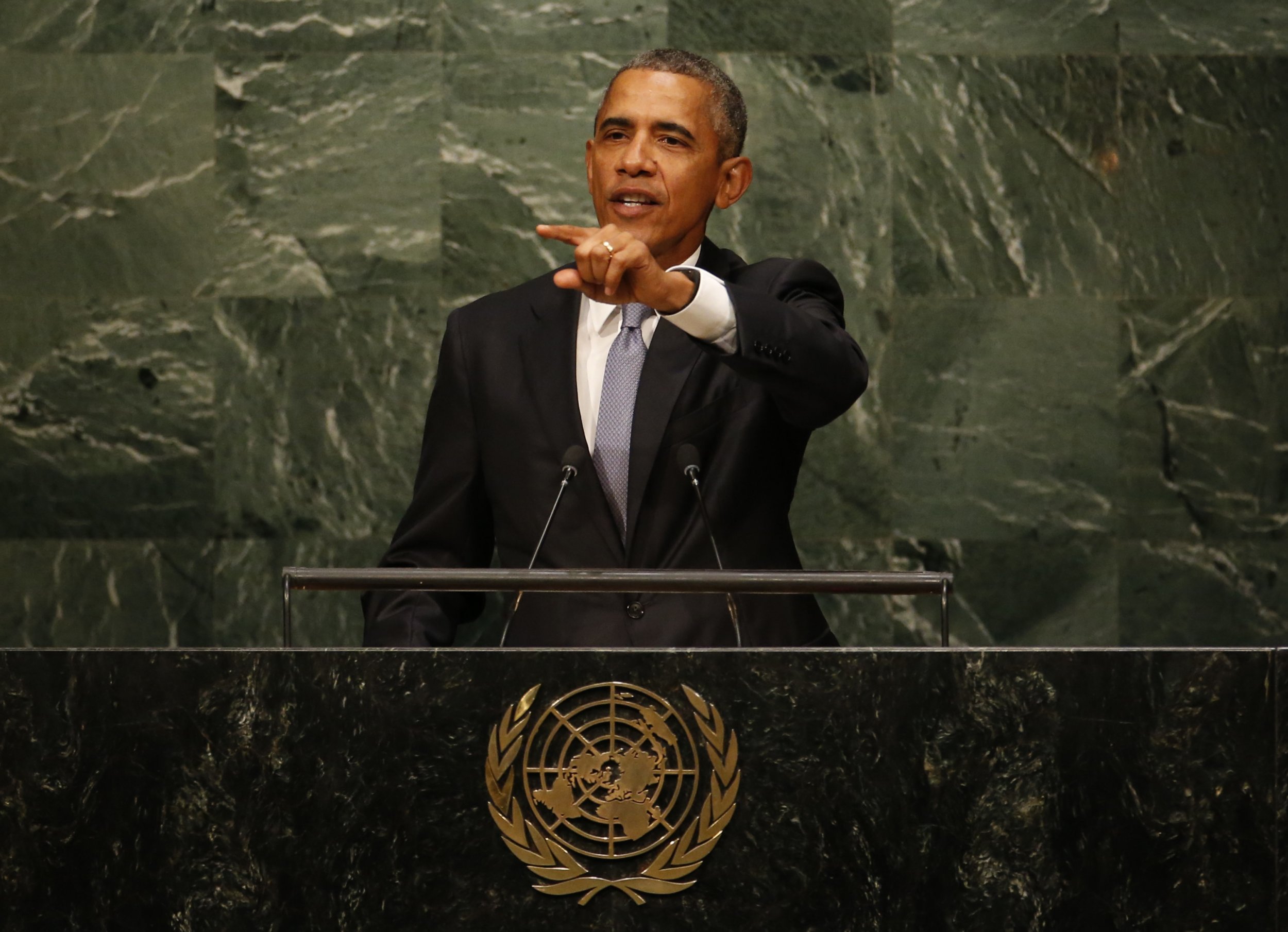
This article first appeared on the Council on Foreign Relations site.
Few global summits can compete with the opening of the United Nations General Assembly (UNGA). All the world's a stage, but the spotlight shines brightest each September in Manhattan, as global leaders gather for UN's "back to school" night.
But while most attention will focus on speeches from the green marble podium, the real action will occur offstage. This year's most important side event is a special Monday afternoon session on UN peacekeeping, convened by President Barack Obama himself and involving leaders of fifty countries. Its outcome will help determine whether the United Nations gets serious about updating the most important weapon in its arsenal to the realities of the twenty-first century.
Surprisingly, "peacekeeping" wasn't even mentioned in the UN Charter of 1945. The concept was invented to describe so-called "Chapter 6 ½" operations falling between pacific settlement of disputes (under Chapter 6) and coercive enforcement action (under Chapter 7).
By now, peacekeeping is the UN's bread and butter. The UN Department of Peacekeeping Operations (UNDPKO) commands the world's largest globally deployed military force—more than 105,000 "blue helmets" and another 15,000 police and civilians, scattered across sixteen operations. These complex and multidimensional missions bear scant resemblance to the UN's early peacekeeping forays, which tended to involve the insertion of lightly armed observers between parties who had already laid down their weapons.
Today's peacekeepers often find themselves drawn into combat with, and outgunned by, heavily armed groups, even as they try to protect civilian populations from slaughter.
Unfortunately, UN peacekeeping is in deep crisis. The heavy demand for missions is outstripping the UN's capacity to mobilize adequate funding, troops, equipment and logistical support. Individual operations are repeatedly undermined by unrealistic UN Security Council mandates, unclear rules of engagement, weak mission leadership and unprofessional—even criminal—conduct by UN troops themselves. The shortcomings have been on display in flailing UN operations from South Sudan to Mali to the Central African Republic.
The president's message on the afternoon of September 28 will be clear: these gaps can and must be closed. Strengthening UN peacekeeping is no humanitarian act of charity, no mere expression of global "social work." It is of fundamental importance to U.S. and international security.
This is particularly true when it comes to the "arc of instability" that now spans west and central Africa, the Sahel, the Horn, the Middle East and southwest Asia. Across this broad expanse, states are failing, humans are suffering, conflict is erupting and extremists are plotting, generating regional instability, aiding criminals and terrorists and even facilitating diseases like Ebola. And increasingly, peacekeeping is the instrument of choice for addressing these threats.
President Obama's commitment to UN peacekeeping runs deep. Six years ago at his first UN peacekeeping summit, he convened a meeting of major troop contributing countries (TCCs) like Rwanda and Bangladesh, the unsung heroes who place their own soldiers on the line in peacekeeping missions. Last year he asked Vice President Biden to convene a similar meeting.
This year, the president has asked each of his fifty counterparts to show up with specific national pledges to improve UN peacekeeping, including offers to contribute more soldiers, increase funding levels, provide airlift and other logistics, or help train peacekeepers.
As an initial down payment, Secretary of State Kerry and his Indian counterpart on September 22 announced a joint initiative to train troops in six African nations as part of the African Peacekeeping Rapid Response Partnership launched at last year's U.S.-Africa Leaders Summit. On Monday, the president plans to announce a far more comprehensive package of U.S. commitments.
Still, the president will stress that the shared threats cry out for burden-sharing among UN member states. The summit's success will depend not just on the individual contributions countries bring to the table but on their collective commitment to structural reforms.
To equip peacekeepers with the tools and training required to fulfill their mandates, the peacekeeping summit should begin by implementing the needed reforms identified by the High-level Independent Panel on Peace Operations (HIPPO), which delivered its report to UN Secretary-General Ban Ki-Moon in June.
Top reform priorities include: persuading more nations to become troop contributing countries; increasing the number of troops that current TCCs provide; improving pre-deployment training of national contingents; ensuring that UN Security Council mandates are clear and realistic, particularly when it comes to protecting civilians; specifying rules of engagement that are aligned with the conflict situation; providing peacekeepers with high-end military capabilities to defend themselves and thwart "spoilers"; adapting peacekeeping doctrine to counterinsurgency and counterterrorist threats; and holding TCCs accountable both for their performance in the field and any misconduct—particularly when it comes to crimes of sexual violence .
The beauty of UN peacekeeping, if properly managed and resourced, is that it can deliver the stability that the world wants without having any one country (including the United States) bear all the costs and risks. But peacekeeping will only succeed if UN member states redouble their commitment to give the United Nations the tools it needs to do the job in a professional and accountable manner.
Stewart M. Patrick is senior fellow and director, Program on International Institutions and Global Governance at the Council on Foreign Relations, on whose site this article first appeared.
Uncommon Knowledge
Newsweek is committed to challenging conventional wisdom and finding connections in the search for common ground.
Newsweek is committed to challenging conventional wisdom and finding connections in the search for common ground.





